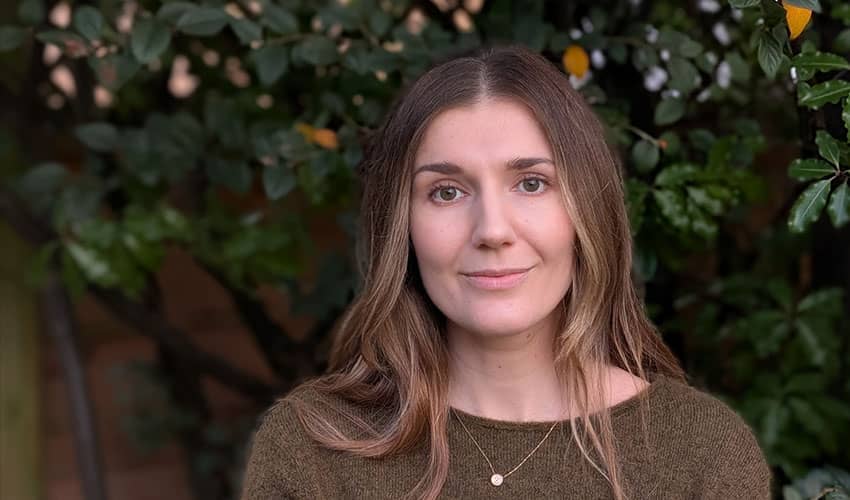Lockdown impacted women's ability to give birth due to increased age, research finds

Pausing in vitro fertilisation (IVF) treatment during lockdown will have a significant impact on women’s ability to give birth, given that they were two months older when their treatment resumed, according to research carried out by the University of the West of England (UWE Bristol) and the University of Glasgow.
Statistical analysis carried out by UWE Bristol using data from the US and UK, showed that across all ages, the COVID-19 lockdown will likely lead to a drop of 0.5% in the live birth rate following IVF treatment. In the US, this is equivalent to 734 fewer live births per year.
Dr Andrew Smith, a Senior Lecturer in statistics at UWE Bristol, who is the first author on a paper published in July that outlined the findings, said: “As IVF success is very sensitive to age, older women are less likely to have a successful outcome and live birth rates will be lower as a result. For a three-month shutdown in treatment, we predict a 0.8% reduction in the live birth rate, which is significant.
“There is generally not much of a drop-off in a woman’s ability to have a baby after IVF between the ages of 26 and 35. After 35, this starts to fall quite dramatically, so every month counts.”
During the lockdown, across all ages of women, the two months with no access to hospitals for IVF treatment meant that women in the UK had a 0.5% lower chance of giving birth, compared to their usual chances. For instance, a woman who is aged 41-42 has a 12% chance of giving birth at her age.
IVF involves women being administered an injection to stimulate her ovaries, after which eggs are removed from her ovaries, before being fertilised with sperm in a laboratory. The embryo is then inserted into her uterus. Modern techniques mean that doctors can also freeze some of her eggs to be used at a later date to form an embryo that will be inserted into her womb.
The findings of this research are now being used by health providers and policy-makers in determining how IVF treatment resumes after the lockdown.
Prof Scott Nelson, who works at the University of Glasgow and is the lead author of the paper, said: “The work undertaken by Andrew Smith and colleagues on the impact of temporary cessation of fertility treatment provision has been critical to the decision making by healthcare providers to recommence treatments within the United Kingdom and globally.
“The Scottish Government and National Infertility Group have used the data and the differential age groups identified, in the planning of the resumption of services and prioritisation of patients whose treatment was disrupted by the COVID-19 pandemic.
The next stage of the research will lead the experts to explore how the economic impact of the pandemic may affect IVF live birth success rates. Results are expected to be published later this year.
Related news

16 February 2026
UWE Bristol researchers awarded grant to explore impact of asset recovery on offenders
UWE Bristol academics have been awarded funding to explore of the impact of asset recovery on deterring offender behaviour and disrupting crime networks.

10 February 2026
Work by UWE Bristol lecturer features in Government’s National Cancer Plan
Work by a UWE Bristol academic has been included in the Government’s National Cancer Plan.

23 January 2026
On-demand minibus services beneficial in rural areas but face financial challenges, trials suggest
Trials of ‘demand responsive transport’ minibus services boosted connectivity for people in rural and suburban areas, according to a new report produced by UWE Bristol researchers.

18 December 2025
UWE Bristol professor appointed National Institute for Health and Care Excellence CEO
Jonathan Benger CBE, Professor of Emergency Care at UWE Bristol, has been appointed as the new chief executive officer of the National Institute for Health and Care Excellence (NICE).

17 December 2025
Findings revealed from first UK study into experiences of mothers who are survivors of rape pregnancy
UWE Bristol academics have revealed the findings of the first UK-based study of the experiences of mothers who are survivors of rape pregnancy.

11 December 2025
Social media influencer work is far more demanding than it looks, research finds
A study exploring the mental health impacts of social media influencer work has revealed that life online is far more demanding than it appears.

25 November 2025
UWE Bristol experts join film Q&A exploring music and melodrama
Academics will take part in the Cary Comes Home Festival, with a post-screening Q&A exploring music, melodrama and emotional storytelling in classic cinema.

17 November 2025
Urgent reform needed to support ambulance-delivered end of life care, study finds
More than three quarters (78 per cent) of paramedics sometimes fear doing the wrong thing when caring for people in the last year of life, new research has found.

13 November 2025
Bristol’s screen industry experiences “boom-and-bust cycle” after post-pandemic recovery, new research from UWE Bristol finds
New research from UWE Bristol provides detailed insight into Bristol's screen sector.

13 November 2025
New AI research to revolutionise animal welfare
A UWE Bristol research project will combine behavioural science and AI to create technology that understands not only what animals do, but how they feel.

10 November 2025
Lessons from Low Traffic Neighbourhoods will drive better public engagement, study finds
Lessons from Low Traffic Neighbourhoods have informed a new toolkit to improve engagement with the public on challenging local street issues.

06 November 2025
First-of-its-kind study aims to help more people spend their final days at home
A new study will explore how architectural design could support end-of-life care in domestic settings.






